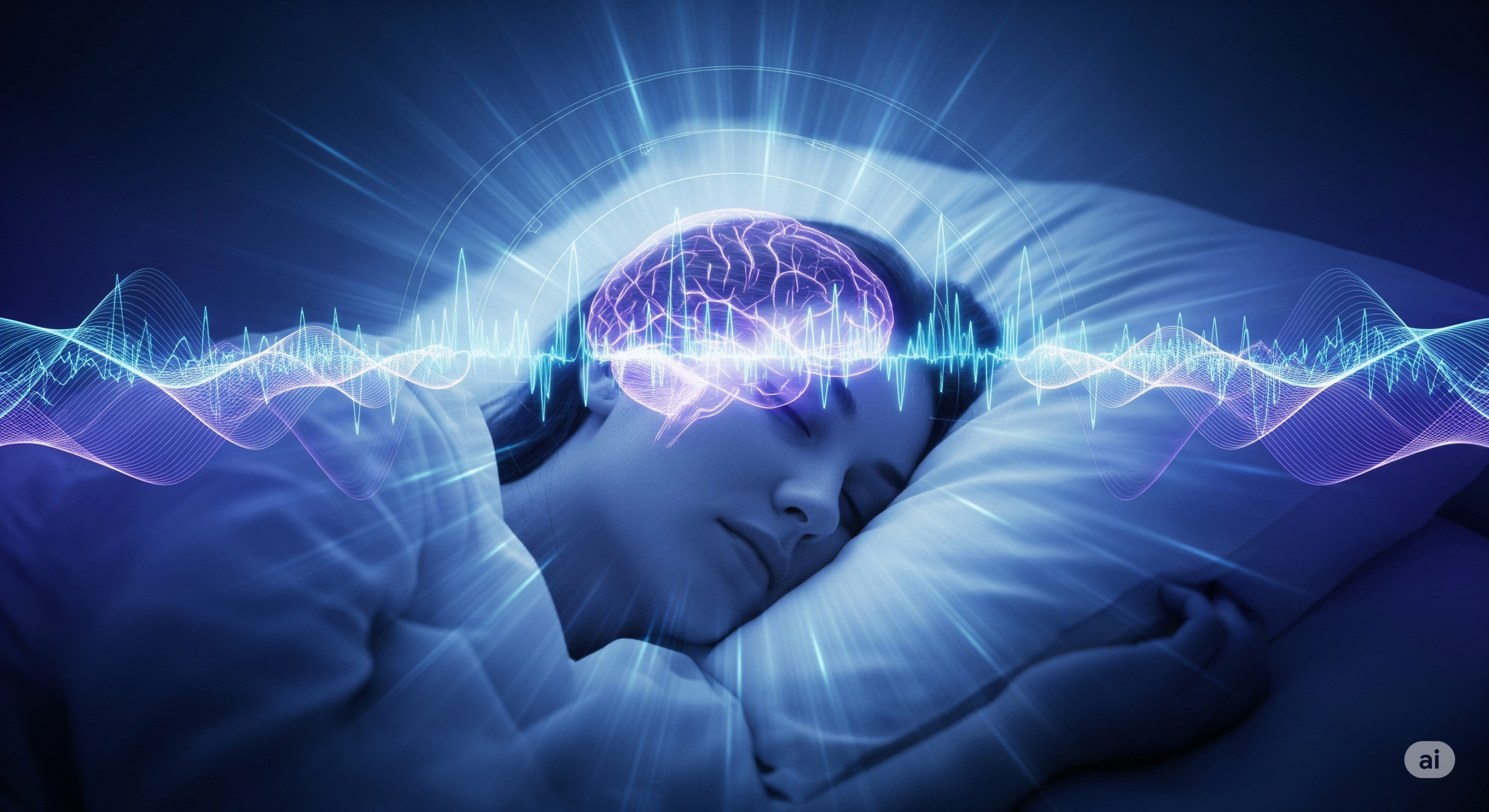The Incredible Benefits of Deep Sleep
Unlock Your Restorative Power

Did you know that the key to a sharper mind, a stronger body, and an unwavering mood might lie in something you do every night, but perhaps not in the right way? Deep sleep isn't just a luxury—it's your body's hidden superpower. Get ready to uncover the amazing benefits of deep sleep and learn how to unlock its restorative power for optimal health and peak performance.
The Incredible Benefits of Deep Sleep
Deep sleep is not merely a period of unconsciousness; it's a vital, active process essential for your physical, mental, and emotional well-being. Understanding these benefits will motivate you to prioritize and optimize this crucial sleep stage.
Deep sleep consolidates memories, improves learning, and sharpens problem-solving skills. Your brain literally re-wires itself during this stage, strengthening important neural connections.
Growth hormone is released during deep sleep, promoting tissue repair, muscle growth, and bone development. This is when your body does its most intensive healing work.
Deep sleep fortifies your immune system, helping your body fight off infections and illnesses. People who get adequate deep sleep are less likely to get sick.
The glymphatic system becomes highly active during deep sleep, clearing out metabolic waste and toxins from the brain, including proteins associated with Alzheimer's disease.
Deep sleep helps process emotions and reduces stress hormones like cortisol. This leads to improved mood stability and emotional resilience during your waking hours.
Deep sleep replenishes your energy stores and optimizes metabolic function, leaving you feeling refreshed and energized for the day ahead.

Debunking Common Deep Sleep Myths
Misconceptions about sleep, particularly deep sleep, can hinder our efforts to achieve truly restorative rest. Let's separate fact from fiction.
While adequate sleep duration is important, quality trumps quantity when it comes to deep sleep. You can sleep 9 hours, but if your sleep is fragmented or light, you won't get the restorative benefits of deep sleep. It's better to get 7 hours of high-quality sleep with adequate deep sleep than 9 hours of poor sleep.
Deep sleep cannot be forced through willpower or extreme techniques. It is a natural process that occurs when the right conditions are present. Trying to force it often leads to the opposite effect, creating anxiety and tension that prevent the natural relaxation needed for this sleep stage.
While it's true that the amount of deep sleep naturally decreases with age, this doesn't mean older adults don't need it. In fact, deep sleep remains crucial for cognitive health, physical recovery, and overall well-being at all ages. The age-related decline makes it even more important to optimize conditions for deep sleep.
Science-Backed Strategies to Maximize Deep Sleep
Achieving consistent, high-quality deep sleep requires a strategic approach grounded in scientific research. Here are the most effective strategies to optimize your deep sleep.
Your body naturally lowers its core temperature to initiate deep sleep. You can facilitate this process by keeping your bedroom between 60-67°F (15-19°C), taking a warm bath 1-2 hours before bed (the subsequent cooling signals sleepiness), and wearing light, breathable sleepwear.
Regular exercise is one of the most powerful factors for promoting deep sleep, but timing is key. Aerobic exercise performed 4-6 hours before bed can significantly increase time spent in deep sleep. Avoid vigorous workouts within 3 hours of bedtime, as they can be too stimulating.
Light exposure regulates your circadian rhythm and melatonin production. Maximize exposure to natural light in the morning and daytime, then minimize all light exposure 2-3 hours before bed. Use blackout curtains, an eye mask, and avoid screens or use blue light filters.
Certain supplements can support your body's natural deep sleep processes. Magnesium (200-400mg) helps relax muscles and nerves. L-theanine (100-200mg) promotes relaxation without drowsiness. Melatonin (0.5-3mg) can help regulate sleep timing when taken 30-60 minutes before bed. Always consult a healthcare professional before starting new supplements.
Maximize Your Deep Sleep Potential
Don't let another night of restorative sleep pass you by. Our scientifically formulated supplements can help you optimize your deep sleep naturally.
Explore Our Sleep SupplementsFrequently Asked Questions About Deep Sleep
Scientific References
- Walker, M. (2017). Why We Sleep: Unlocking the Power of Sleep and Dreams. Scribner.
- National Sleep Foundation. (2020). Deep Sleep and Recovery Guidelines. Sleep Health Journal.
- Harvard Medical School. (2019). The Science of Deep Sleep and Brain Health. Harvard Health Publishing.
- American Academy of Sleep Medicine. (2021). Clinical Guidelines for Sleep Stage Optimization.
- Journal of Sleep Research. (2020). Deep Sleep Benefits and Enhancement Strategies.
About the Author
Sleep & Wellness Experts is a team of certified sleep coaches and health professionals dedicated to providing evidence-based information and practical strategies for improving sleep and overall well-being. Our mission is to help you achieve your best rest for a healthier, more vibrant life.
Disclaimer
The information provided in this article is for educational purposes only and is not intended to be a substitute for professional medical advice, diagnosis, or treatment. Always seek the advice of your physician or other qualified health provider with any questions you may have regarding a medical condition. Never disregard professional medical advice or delay in seeking it because of something you have read on this website.

Wagner P
Natural Health Researcher & Founder of LabOfficial
Wagner is dedicated to researching and testing safe, natural solutions for everyday health problems. Through LabOfficial, he shares effective home remedies and recommends science-backed supplements that simplify healing and restore well-being without side effects.
Disclaimer: The information contained in this article is for educational and informational purposes only. It is not a substitute for professional medical advice, diagnosis, or treatment. Always seek the advice of a qualified health professional before starting any new diet, exercise program, or supplementation.